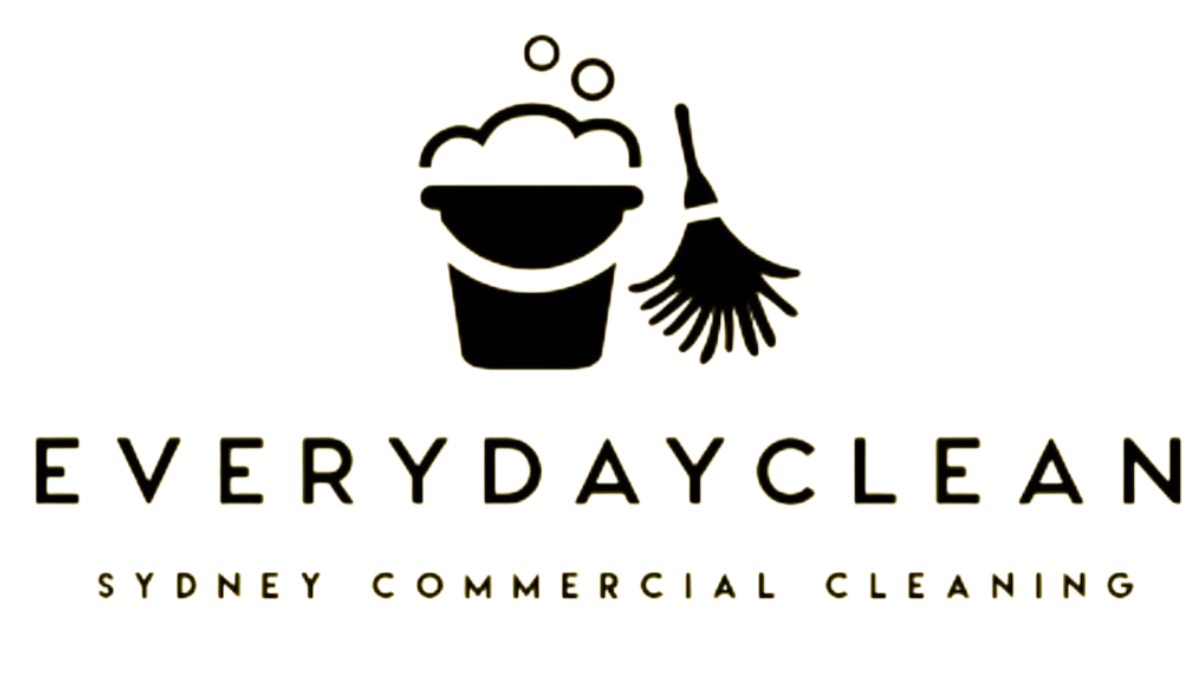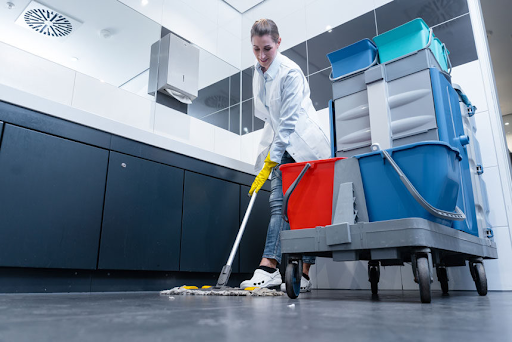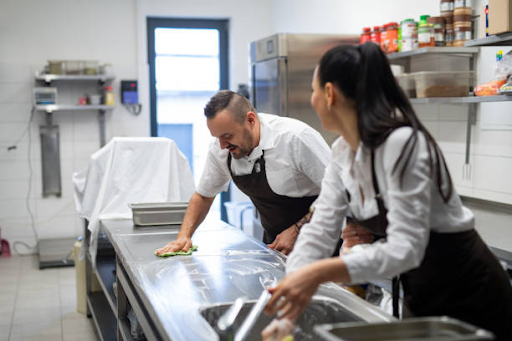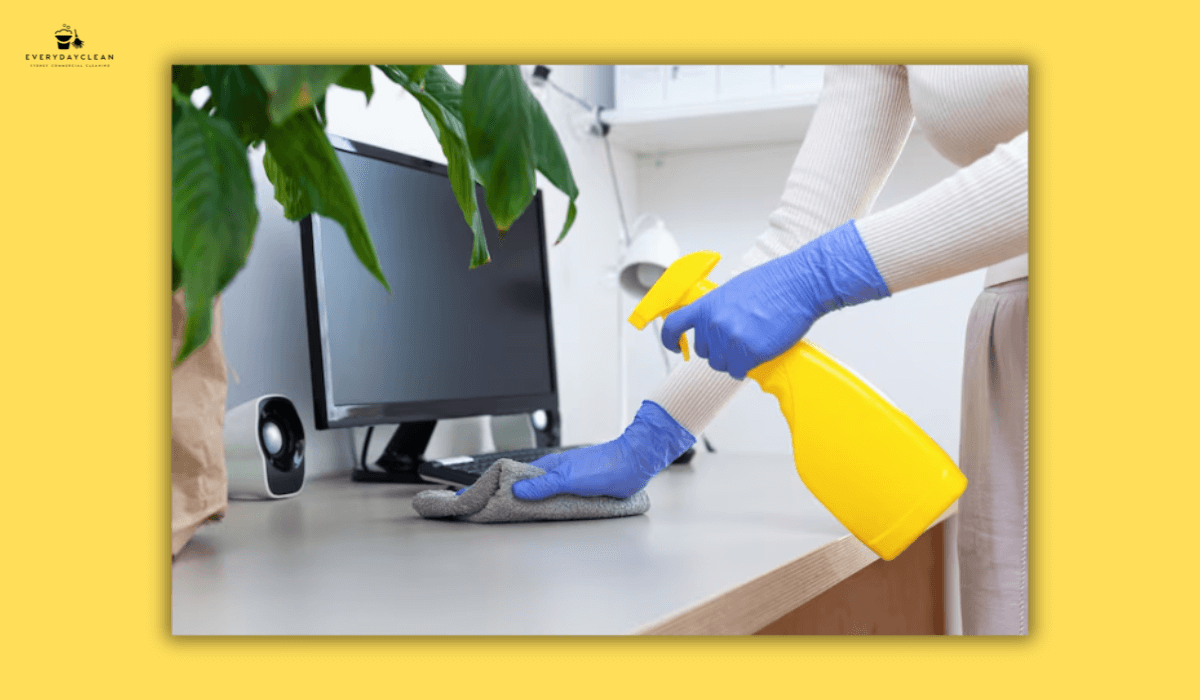Commercial Kitchen Cleaning Sydney: Expert Cleaning Guide
A clean commercial kitchen is the backbone of any successful food operation. From restaurants and cafés to catering kitchens and food prep facilities, hygiene, safety, and operational efficiency all begin with a structured cleaning routine. This guide to commercial kitchen cleaning in Sydney outlines the key areas, schedules, and practices needed to maintain a food-safe environment that meets local compliance standards without cutting corners.
Whether you’re running a high-volume kitchen or a boutique food service, maintaining a consistent and effective cleaning system is essential for regulatory compliance, workflow efficiency, and customer trust.
Why Commercial Kitchen Cleaning in Sydney Requires Precision
Sydney’s food industry operates under some of the most stringent cleaning and sanitation regulations in Australia. Every establishment is subject to inspections and operational audits to ensure food service areas remain free of grease, debris, and contamination risks.
Partnering with reliable providers like Everyday Clean’s commercial cleaning specialists ensures your kitchen stays compliant, clean, and ready for peak service.
Regular cleaning is not just about appearance—it's a regulatory and operational imperative that prevents equipment malfunction, pest attraction, and workplace safety issues.
Core Zones That Demand Rigorous Cleaning in Every Kitchen
Each area in a commercial kitchen presents unique cleaning requirements. Addressing these zones systematically improves cleanliness and reduces compliance risks.
High-Contact Equipment and Surfaces
Food contact surfaces such as benches, sinks, prep tables, and cutting stations must be cleaned frequently to eliminate residue buildup. These areas should be cleaned using food-safe degreasers and immediately dried to avoid moisture accumulation that can attract pests or cause slip hazards.
Cooking Equipment and Exhaust Systems
Grease-laden appliances like ovens, stovetops, fryers, and grills accumulate residue quickly, requiring powerful degreasers and heat-safe tools. Exhaust hoods and filters must also be cleaned frequently to prevent fire hazards and ensure proper ventilation.
Storage and Dry Areas
Pantries, walk-ins, and dry goods storage should be kept free of dust, expired goods, and moisture. Use sealed containers and wipe shelving regularly to support both cleanliness and pest prevention strategies.
Cold Storage Units
Refrigerators and freezers need more than just temperature checks. Weekly cleaning of interior surfaces, door seals, and vents helps prevent mould, odours, and bacterial growth. Always store food off the floor and implement a “first in, first out” (FIFO) rotation system.
For general workplace cleanliness across departments, you can refer to our office cleaning service for consistent cleaning routines adapted to shared spaces.
Daily and Weekly Kitchen Cleaning Routines That Work
A clear schedule separates surface-level tidying from deep sanitation. Here's how to structure your plan for lasting impact.
Daily Commercial Kitchen Cleaning Tasks
End-of-shift cleaning should cover all prep surfaces, high-contact handles, kitchen floors, and equipment used during service. Empty rubbish bins, clean and sanitise cutting boards, and wash mop heads and cleaning cloths after each use.
Weekly Deep Cleaning Focus Areas
At least once a week, shift focus to deeper tasks: behind equipment, inside ovens, under sinks, and on ceiling-mounted vents. Cleaning these hidden or neglected areas improves airflow, extends equipment lifespan, and keeps inspection-readiness high.
Using the Right Tools and Supplies for the Job
Not all cleaning products are created equal—especially in a food prep environment. Commercial-grade, food-safe cleaning solutions are essential for breaking down grease without leaving residues or odours.
Use:
- Degreasers specifically designed for commercial food settings
- Microfibre cloths for efficient residue removal
- Scrub pads that won’t damage stainless steel
- Sanitiser sprays approved for use in food environments
Avoid chlorine bleach unless specified safe for food surfaces, and never mix chemicals without training.
Preparing for Inspections and Regulatory Audits
Health inspections in Sydney focus on visible cleanliness, storage practices, cleaning logs, and waste management. Maintaining spotless preparation areas and adhering to scheduled cleanings reduces the risk of fines, corrective notices, or temporary shutdowns.
A well-cleaned kitchen demonstrates professionalism and builds customer confidence in your commitment to safe operations. Stay ahead of inspections by ensuring all cleaning records, safety data sheets (SDS), and equipment maintenance logs are easily accessible and up to date.
FAQs About Commercial Kitchen Cleaning Sydney
What are the best practices for cleaning a commercial kitchen?
Establish a clear routine, use food-safe cleaning agents, and prioritise grease-prone areas like cooktops, grills, and exhaust hoods. Don’t skip hard-to-reach spaces—inspect behind and under all appliances regularly.
How often should different parts of a kitchen be cleaned?
Surfaces and tools used during food prep must be cleaned and sanitised after every use. Deep cleaning of equipment like ovens and cold storage should occur weekly, while exhaust systems may require monthly or quarterly servicing depending on kitchen volume.
What cleaning supplies are best suited for food environments?
Choose pH-neutral degreasers, non-corrosive sanitisers, and microfibre-based tools. Avoid heavily fragranced or residue-leaving cleaners that can affect food safety.
How can I ensure I’m compliant with Sydney’s cleaning regulations?
Follow NSW Food Authority guidelines, create a structured cleaning log, and consider working with a professional cleaning company experienced in commercial kitchen compliance.
What’s the risk of not maintaining a proper cleaning routine?
Neglected kitchens risk operational downtime, pest problems, damaged equipment, and failed inspections. A proactive cleaning strategy is the easiest way to maintain food-safe status and business continuity.
Conclusion
A spotless kitchen isn’t a luxury—it’s a legal and operational requirement in Sydney’s food industry. From deep grease removal to compliance-ready routines, every surface in a commercial kitchen plays a role in ensuring safe, efficient, and uninterrupted service.
If you manage a restaurant, café, catering business, or any food-prep facility in Sydney, let Everyday Clean handle your cleaning needs with precision and care. Our experienced team uses eco-safe products and proven techniques to deliver outstanding results every time.
Call us today to book a free inspection and discover how our Sydney-based commercial kitchen cleaning service can support your business.
Author: Everyday Clean Content Team
Everyday Clean is Sydney’s trusted provider of professional office, strata, and commercial cleaning services. Our licensed and insured team helps workplaces maintain top hygiene standards with eco-friendly products and proven cleaning systems. With years of experience supporting Sydney businesses, Everyday Clean shares expert tips, real case studies, and practical advice to keep your workplace safe, compliant, and welcoming.





